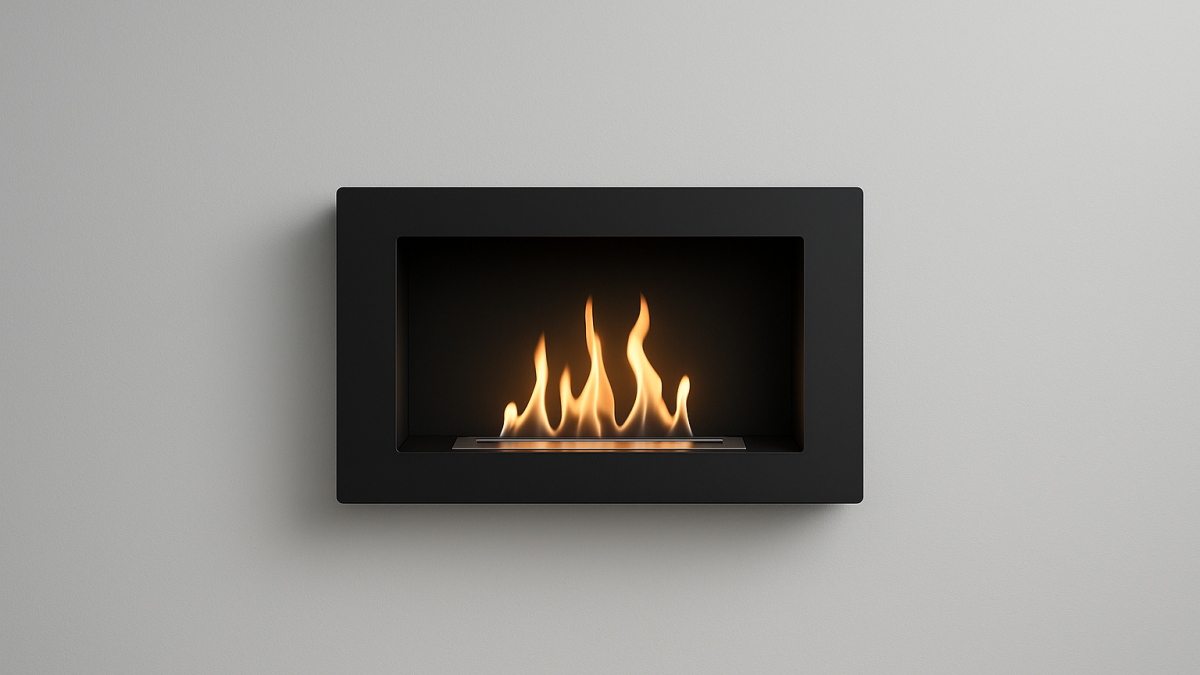Features / Advertising Feature
Eco-friendly heating solutions for your home
As environmental awareness grows, many homeowners are looking for sustainable ways to heat their homes. Bioethanol fireplaces offer a stylish and eco-friendly option, combining modern design with environmental benefits. Learn how these fireplaces can make your home more sustainable.
With sustainability becoming a key focus in home design, bioethanol fireplaces are gaining popularity among eco-conscious homeowners. These fireplaces not only enhance the aesthetic appeal of a home but also help reduce environmental impact. By choosing bioethanol-fireplace.co.uk, you can enjoy the warmth and ambiance of a traditional fireplace while contributing to a cleaner environment.
How bioethanol fireplaces work and their types
Bioethanol fireplaces use a clean-burning fuel made from renewable resources like corn or sugarcane. Unlike traditional wood-burning fireplaces, they do not produce smoke or soot, making them suitable for indoor use without the need for a chimney or flue. This feature allows for greater flexibility in installation and design, accommodating various interior styles and spaces.
There are several types of bioethanol fireplaces available, each catering to different needs and preferences. Wall-mounted models offer a sleek and modern look, perfect for urban apartments or minimalist interiors. Freestanding units provide mobility and ease of placement, allowing you to rearrange your space as desired. Additionally, tabletop versions offer compact elegance, suitable for smaller rooms or outdoor settings.
is needed now More than ever
The versatility of bioethanol fireplaces ensures they can complement any home decor while providing a sustainable heating solution. By choosing the right type and design, you can enhance both the aesthetic and functional aspects of your living space.
Environmental benefits compared to traditional heating
Bioethanol fireplaces have a minimal environmental impact compared to conventional heating systems. Bioethanol combustion results in negligible emissions of carbon monoxide and carbon dioxide, significantly reducing your home’s carbon footprint. This contrasts sharply with fossil fuel-based heaters that contribute to air pollution and climate change.
In addition to low emissions, bioethanol is a renewable resource, making it a more sustainable option than finite fossil fuels. The production process involves fermenting plant materials, creating a cycle that continually renews itself. This means every time you use bioethanol as a fuel source, you are supporting sustainable agriculture practices.
By reducing dependence on non-renewable energy sources, you play a part in promoting global sustainability efforts. This conscious choice aligns with growing trends towards environmentally responsible living, offering an efficient alternative that benefits both your home and the planet.
Practical tips for installation and maintenance
When considering installing a bioethanol fireplace, it is essential to evaluate the space and design that best suits your needs. Installation is generally straightforward due to the absence of vents or chimneys. However, ensuring proper placement away from combustible materials is crucial for safety.
Maintenance of bioethanol fireplaces is relatively simple compared to traditional options. Routine cleaning involves wiping down surfaces and occasionally inspecting burner components for wear or damage. The simplicity of upkeep adds to their appeal as an eco-friendly heating solution.
Selecting the appropriate size and design ensures optimal performance and integration into your home environment. Whether opting for wall-mounted elegance or tabletop convenience, choosing wisely enhances both functionality and aesthetic appeal.
Economic advantages of eco-friendly heating
The cost-effectiveness of bioethanol fireplaces is another compelling advantage for homeowners seeking sustainable solutions. While initial investment may be comparable to other modern fireplaces, long-term savings on energy bills can be significant. The efficiency of bioethanol fuel ensures more heat output per unit compared to traditional fuels like wood or gas.
Moreover, as energy prices fluctuate, having an alternative source provides financial stability against rising costs associated with conventional heating methods. The simplicity of installation further reduces initial expenses by eliminating the need for costly chimney or vent systems.
The economic benefits extend beyond immediate savings; investing in eco-friendly technologies can increase property value by appealing to environmentally conscious buyers in future real estate markets. Making informed choices today can thus yield financial rewards tomorrow while supporting global environmental initiatives.
 Our newsletters emailed directly to you
Our newsletters emailed directly to you



















